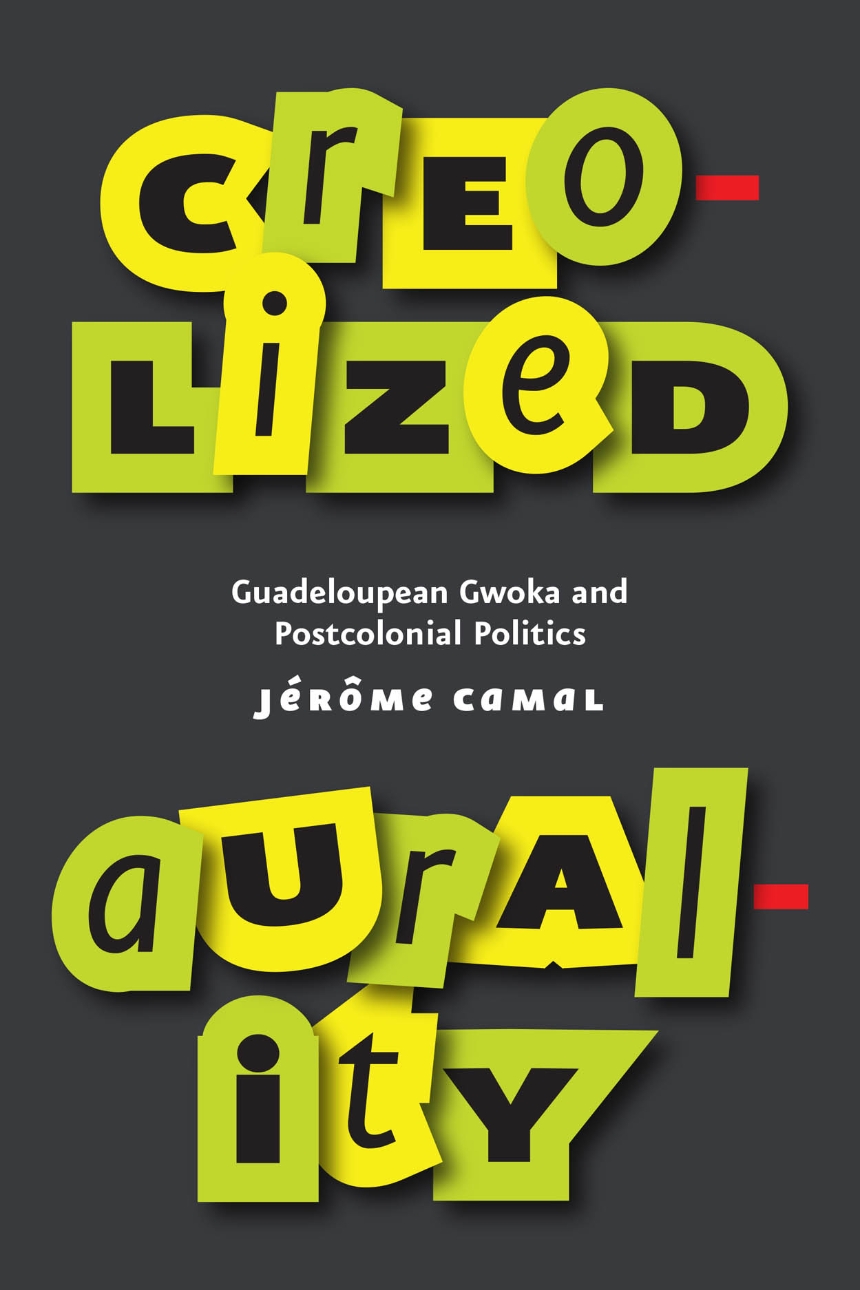Creolized Aurality
Guadeloupean Gwoka and Postcolonial Politics
9780226631776
9780226631639
9780226631806
Creolized Aurality
Guadeloupean Gwoka and Postcolonial Politics
In the Caribbean island of Guadeloupe, the complex interplay between anticolonial resistance and accommodation resounds in its music. Guadeloupean gwoka music—a secular, drum-based tradition—captures the entangled histories of French colonization, movements against it, and the uneasy process of the island’s decolonization as an overseas territory of France. In Creolized Aurality, Jérôme Camal demonstrates that musical sounds and practices express the multiple—and often seemingly contradictory—cultural belongings and political longings that characterize postcoloniality. While gwoka has been associated with anti-colonial activism since the 1960s, in more recent years it has provided a platform for a cohort of younger musicians to express pan-Caribbean and diasporic solidarities. This generation of musicians even worked through the French state to gain UNESCO heritage status for their art. These gwoka practices, Camal argues, are “creolized auralities”—expressions of a culture both of and against French coloniality and postcoloniality.
256 pages | 4 halftones, 7 line drawings | 6 x 9 | © 2019
Chicago Studies in Ethnomusicology
Anthropology: Cultural and Social Anthropology
Music: Ethnomusicology
Reviews
Table of Contents
List of Abbreviations
List of Online Resources
List of Online Resources
Introduction / Listening for (Post)colonial Entanglements
One / The Poetics of Colonial Aurality
Two / Building an Anticolonial Aurality: Gwoka modènn as Counterpoetics
Three / Discrepant Creolizations: Music and the Limits of Hospitality
Four / Diasporic or Creole Aurality? Aesthetics and Politics across the Abyss
Five / Postnational Aurality: Institutional Detour and the Creolization of Sovereignty
Coda / Bigidi
One / The Poetics of Colonial Aurality
Two / Building an Anticolonial Aurality: Gwoka modènn as Counterpoetics
Three / Discrepant Creolizations: Music and the Limits of Hospitality
Four / Diasporic or Creole Aurality? Aesthetics and Politics across the Abyss
Five / Postnational Aurality: Institutional Detour and the Creolization of Sovereignty
Coda / Bigidi
Acknowledgments
Basic Gwoka Rhythms
Notes
Discography
Bibliography
Index
Basic Gwoka Rhythms
Notes
Discography
Bibliography
Index
